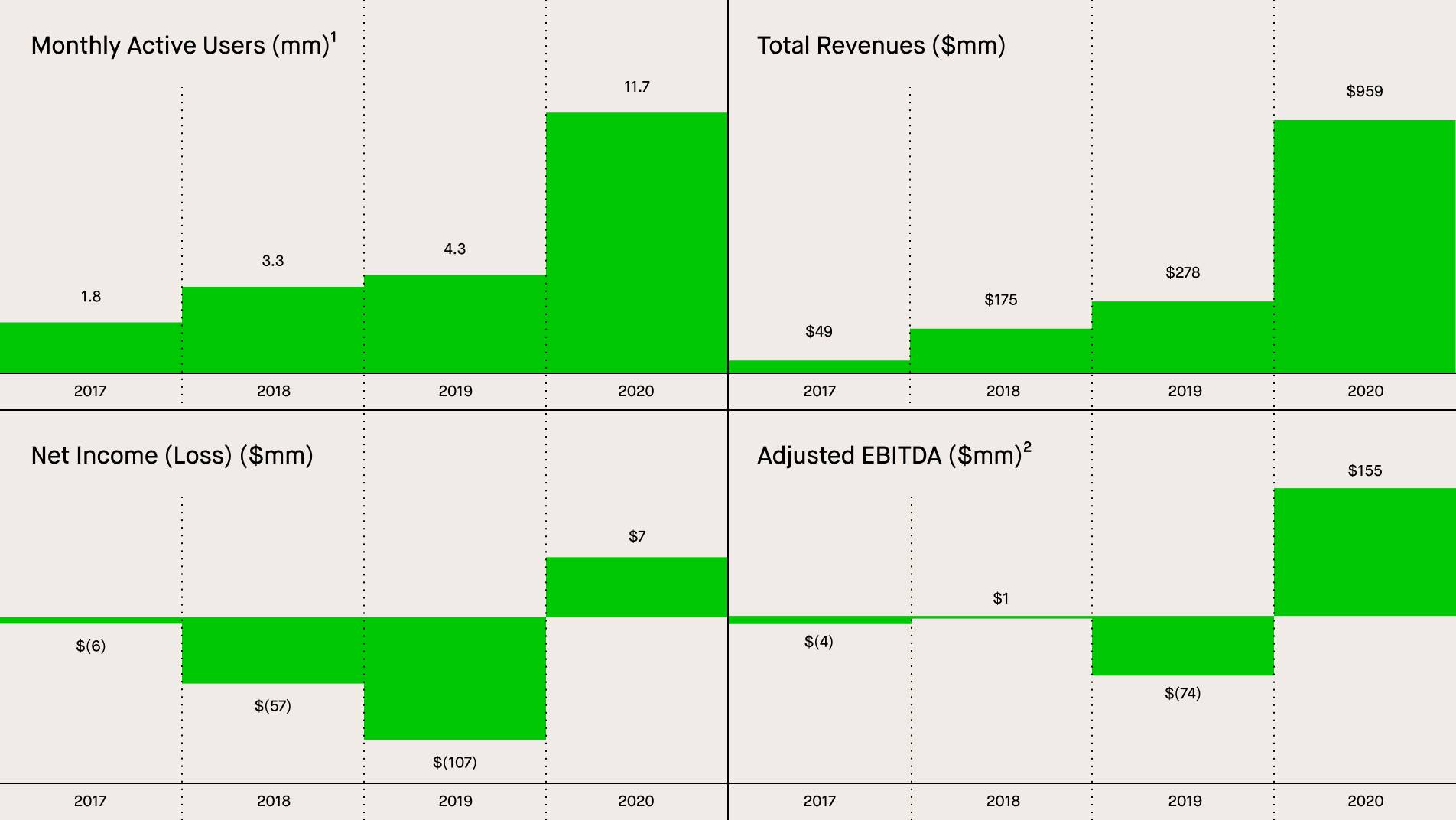Home>Finance>How Long Does It Take A Life Insurance Policy To Pay Out


Finance
How Long Does It Take A Life Insurance Policy To Pay Out
Published: November 23, 2023
Find out how long it takes for a life insurance policy to pay out and ensure financial security for your loved ones. Explore the finance aspect of life insurance payouts.
(Many of the links in this article redirect to a specific reviewed product. Your purchase of these products through affiliate links helps to generate commission for LiveWell, at no extra cost. Learn more)
Table of Contents
- Introduction
- Understanding Life Insurance Payouts
- Factors That Affect Payout Time
- Types of Life Insurance Policy Payouts
- How Long Does It Typically Take for a Life Insurance Policy to Pay Out?
- Steps to Expedite the Life Insurance Payout Process
- Common Delays in Receiving Life Insurance Payouts
- What to Do if the Life Insurance Payout is Delayed
- Conclusion
Introduction
Life insurance is a crucial financial tool that provides protection and financial security for your loved ones in the event of your death. It offers peace of mind by ensuring that your family is financially supported even when you are no longer around.
While the primary purpose of life insurance is to provide a death benefit to your beneficiaries, one common question that arises is how long it takes for a life insurance policy to pay out. This is an important consideration, as the timing of the payout can have a significant impact on your family’s financial situation.
In this article, we will explore the factors that can affect the payout time of a life insurance policy and the different types of life insurance policy payouts. We will also discuss how long it typically takes for a life insurance policy to pay out, steps you can take to expedite the process, and what to do if there is a delay in receiving the life insurance payout.
Understanding the timing and process of life insurance payouts can help you effectively plan and ensure that your loved ones are financially protected in the unfortunate event of your death. So, let’s dive in and explore the fascinating world of life insurance payouts.
Understanding Life Insurance Payouts
Life insurance payouts refer to the amount of money that is paid to the beneficiaries of a life insurance policy upon the death of the policyholder. These payouts are designed to provide financial support to the policyholder’s loved ones, ensuring that they are able to cope with the loss and maintain their financial stability.
Life insurance policies typically have a specific payout amount, known as the death benefit, which is determined at the time of policy purchase. The death benefit can range from a few thousand dollars to millions of dollars, depending on the policyholder’s needs and financial circumstances.
It’s important to note that life insurance payouts are not automatically disbursed after the death of the policyholder. Instead, beneficiaries are required to file a claim with the insurance company and provide the necessary documentation, such as a death certificate and proof of relationship to the policyholder, to initiate the payout process.
Once the claim is submitted and verified, the insurance company will review the policy details and determine if the death is covered under the policy’s terms and conditions. If the claim is approved, the insurance company will proceed with the payout, either as a lump sum or in installments, depending on the policy’s payout option.
In addition to the death benefit, some life insurance policies also offer additional benefits, such as accelerated death benefits or policy loans. These benefits can provide policyholders with the option to access a portion of the death benefit while they are still alive in certain circumstances, such as a terminal illness diagnosis or financial hardship.
Understanding the nuances of life insurance payouts is essential for both policyholders and beneficiaries. It enables them to navigate the claims process smoothly and ensure that the funds are received in a timely manner, providing the necessary financial support during a difficult time.
Factors That Affect Payout Time
The time it takes for a life insurance policy to pay out can vary depending on several factors. While each insurance company has its own procedures and timelines, the following are some common factors that can influence the payout time:
- Claim Documentation: The speed of the payout process is often contingent upon how quickly the beneficiary submits the necessary documentation to the insurance company. This typically includes a death certificate, proof of identity, and completed claim forms. Any delays in providing the required documents can significantly impact the payout time.
- Policy Review: Upon receiving the claim, the insurance company will conduct a thorough review of the policy to ensure that the death is covered under its terms. This evaluation process can vary in duration depending on the complexity of the policy and any additional policy riders or exclusions.
- Beneficiary Investigation: In some cases, the insurance company may need to conduct an investigation to verify the beneficiaries’ information and their relationship to the policyholder. This is particularly true if the beneficiaries are not clearly stated in the policy or if there are disputes regarding the rightful recipients of the death benefit.
- Type of Death: The circumstances of the policyholder’s death can impact the payout time. If the death occurs due to natural causes and is straightforward, the process may be quicker. However, if the death is accidental or involves questionable circumstances, the insurance company may require additional investigation and evidence, potentially leading to delays in the payout.
- Policy Contestability: During the initial two years of a life insurance policy, the insurance company has the right to contest the payout if it discovers any misrepresentation or fraud during the application process. While these situations are rare, if the insurance company suspects foul play, it may prolong the payout process until it completes an investigation or legal proceedings.
- Policy Type: The type of life insurance policy can also influence the payout time. Term life insurance policies, which provide coverage for a specific period, are usually simpler and faster to process. On the other hand, permanent life insurance policies, such as whole life or universal life, may involve more complex calculations and disbursement options, leading to longer payout times.
Remember, these factors are not exhaustive, and the specific circumstances surrounding each policy and insurance company can impact the payout process. It’s essential to communicate directly with the insurance company for accurate information regarding the expected payout time for a particular policy.
Types of Life Insurance Policy Payouts
Life insurance policies offer different options for how the death benefit can be paid out to the beneficiaries. The choice of payout option can impact the timing and method of receiving the funds. Here are the most common types of life insurance policy payouts:
- Lump Sum: Under this option, the entire death benefit is paid out in a single, lump sum payment. This is the most straightforward and common method of payout. The beneficiary receives the full amount of the death benefit at once, providing immediate access to the funds.
- Installments: Instead of a lump sum, some policies offer the option of receiving the death benefit in regular installments. The insurance company will specify the frequency and duration of the payments, such as monthly, quarterly, or annually. This can be helpful for beneficiaries who prefer a steady income stream rather than a lump sum payment.
- Annuity: In some cases, the death benefit may be used to purchase an annuity, which is a financial product that provides regular income over a specified period or for the beneficiary’s lifetime. This option can provide a guaranteed income stream to the beneficiary and ensure long-term financial stability.
- Retained Death Benefit: For policies with a retained death benefit option, the insurance company retains the death benefit and pays out only the earnings or interest generated by the amount. This can be advantageous for beneficiaries who want to leave a portion of the death benefit invested with the insurance company to earn additional returns while receiving regular payments.
- Specific Needs Payout: Some life insurance policies may offer a specific needs payout option. In this case, the insurance company releases the death benefit in predefined amounts or intervals to cover specific expenses, such as the beneficiary’s education expenses, mortgage payments, or healthcare costs.
- Charitable Donation: If the policyholder has designated a charitable organization as a beneficiary, the death benefit can be paid out as a charitable donation. This allows the funds to be used for the benefit of the designated charity and its philanthropic activities.
It’s important to carefully consider the payout options available with your life insurance policy and choose the one that aligns with the needs and preferences of your beneficiaries. Discussing the options with your insurance agent can help you make an informed decision based on your financial goals and the well-being of your loved ones.
How Long Does It Typically Take for a Life Insurance Policy to Pay Out?
The time it takes for a life insurance policy to pay out can vary depending on several factors, including the insurance company’s policies and procedures, the complexity of the policy, and the smoothness of the claims process. While there is no definitive answer to how long it will take, in general, life insurance policies typically pay out within 30 to 60 days after the claim is submitted and approved.
Simple and straightforward claims that meet all the necessary requirements and documentation can often be processed more quickly. On the other hand, claims that involve complex policy terms, beneficiary disputes, or additional investigations may take longer to finalize.
It’s important to keep in mind that this is a general estimate, and the actual payout time can vary. Some insurance companies may have streamlined processes and technology that expedite the claim processing, resulting in faster payouts. Others may have longer processing times due to various internal factors or a high volume of claims to handle.
If you are concerned about the payout time, it’s a good idea to review the specific terms and conditions of your life insurance policy. Some insurance companies may offer provisions for expedited claims processing, such as advanced payment options in cases of financial hardship or terminal illness diagnosis.
Additionally, keeping thorough and up-to-date records of your life insurance policy details, including policy number, contact information for the insurance company, and the designated beneficiaries, can help streamline the claims process. This information will be crucial when filing a claim and can help avoid any unnecessary delays.
While waiting for the payout, it’s essential to communicate regularly with the insurance company and follow up on the claim’s progress. This proactive approach can help ensure that any potential issues or delays are addressed promptly, enabling a smoother and timely payout process.
Remember, each life insurance policy and insurance company is unique, which means the payout time can vary. If you have specific questions or concerns about the payout process, don’t hesitate to reach out to your insurance agent or the customer service department of the insurance company for further clarification.
Steps to Expedite the Life Insurance Payout Process
While the timeline for life insurance payouts can vary, there are steps you can take to help expedite the process and ensure a smoother experience for your beneficiaries. Here are some actions you can consider:
- Notify the Insurance Company Promptly: As soon as possible after the policyholder’s death, notify the insurance company and initiate the claims process. Provide all the necessary details and follow their instructions regarding documentation and forms to be submitted. Prompt notification can help prevent unnecessary delays.
- Gather Required Documents: Collect all the necessary documents, such as the death certificate, policy information, proof of identity, and any other supporting documentation required by the insurance company. Keep these documents organized and readily available to submit with the claim.
- Complete Claim Forms Accurately: Make sure to fill out the claim forms accurately and thoroughly. Double-check all the information before submitting to avoid any errors or missing details that may prolong the process.
- Follow Up Regularly: Stay in touch with the insurance company and follow up on the progress of the claim. Maintain open lines of communication to address any questions or concerns promptly and provide any additional information or documentation that may be required.
- Provide Additional Information if Needed: In some cases, the insurance company may request additional information or documentation to process the claim. Respond to these requests promptly and provide the necessary details to avoid unnecessary delays.
- Know Your Policy Details: Familiarize yourself with the specific terms and conditions of the life insurance policy. Understand the payout options, any riders or endorsements, and any potential contingencies that may affect the claim. Being well-informed will help you navigate the process more efficiently.
- Work with a Professional: If the claim process becomes complicated or if you encounter any challenges, consider seeking assistance from a professional, such as an insurance agent or attorney who specializes in life insurance claims. They can provide guidance, advocate on your behalf, and help resolve any issues that may arise.
Remember, while these steps may help expedite the life insurance payout process, it’s important to bear in mind that some factors, such as the insurance company’s internal procedures and the complexity of the claim, may still impact the timeline. Stay patient, maintain open communication, and proactively follow up to ensure a timely payout.
By taking these steps and staying actively engaged in the claims process, you can help smooth the path for your beneficiaries to receive the financial support they need during a challenging time.
Common Delays in Receiving Life Insurance Payouts
While we all hope for a smooth and timely process when it comes to life insurance payouts, there can be various factors that may cause delays. Being aware of these common delays can help you better understand and potentially mitigate any issues that may arise. Here are some of the most common delays in receiving life insurance payouts:
- Incomplete Documentation: One of the primary reasons for delays is incomplete or missing documentation. If the required paperwork is not submitted accurately or on time, it can significantly slow down the claims process. Ensure that all necessary documents, such as the death certificate and proof of identity, are provided promptly and in the format requested by the insurance company.
- Beneficiary Disputes: If there are disputes among the named beneficiaries regarding the distribution of the death benefit, it can lead to delays. Insurance companies must ensure that the rightful recipients are identified, which may involve legal processes and investigations before a payout is made.
- Policy Under Investigation: In certain circumstances, the insurance company may need to investigate the policy to ensure there were no misrepresentations or fraud at the time of application. This can occur during the policy’s contestability period or in cases where there are doubts surrounding the cause of death. These investigations can lead to significant delays in the payout process.
- Policy Details and Riders: The complexity of the life insurance policy and any additional riders or endorsements can also impact the payout time. Policies with unique provisions or complex structures may require more time for the insurance company to review and process the claim accurately.
- Policy Lapses or Non-Payment: If the policyholder failed to pay premiums, resulting in the policy lapsing, or if there are outstanding loans against the policy, it can complicate the payout process. The insurance company may need to reconcile any outstanding amounts before releasing the death benefit.
- High Claim Volume: During times of high claim volume, such as in the event of a natural disaster or pandemic, insurance companies may experience increased processing times. The sheer number of claims to be processed can create delays as companies prioritize and handle claims in the order they are received.
- Legal Proceedings: In cases where legal proceedings are involved, such as disputes over the beneficiaries or lawsuits against the insurance company, the payout process may be delayed until the legal matters are resolved. This can significantly prolong the timeframe for receiving the death benefit.
While these delays are common, it’s important to note that each situation is unique, and the specific circumstances surrounding the policy and claim can impact the payout process. Staying in regular communication with the insurance company, addressing any issues promptly, and seeking assistance from professionals, if needed, can help navigate these delays effectively.
Remember, patience is key during the claims process. While delays may be frustrating, understanding the potential roadblocks and working closely with the insurance company can help resolve any issues and ensure a timely payout to provide the financial support your loved ones need.
What to Do if the Life Insurance Payout is Delayed
If you find yourself in a situation where the life insurance payout is delayed, it can be understandably frustrating and concerning. However, there are steps you can take to address the issue and expedite the process:
- Contact the Insurance Company: Start by reaching out to the insurance company’s customer service department or your designated point of contact. Inquire about the status of the claim and ask for an explanation regarding the delay. Often, a simple phone call can help shed light on any issues or miscommunications that may have occurred.
- Be Prepared and Documented: Have all your documentation and records readily available. This includes the claim forms, communication history with the insurance company, policy details, proof of submission, and any other relevant documents. Being well-prepared and organized will enable you to address any requests or inquiries quickly.
- Follow Up in Writing: If the delay persists or if you are not receiving satisfactory responses over the phone, consider following up with a written communication. Send a polite and detailed letter or email outlining your concerns, providing an overview of the case, and requesting a prompt resolution. Keep a copy of the correspondence for your records.
- Escalate the Issue: If the delay continues despite your efforts, consider escalating the matter to a higher authority within the insurance company. Ask to speak to a supervisor or a manager who can provide further assistance and intervene on your behalf. Clearly explain the reasons for your concern and emphasize the need for a timely resolution.
- Seek Legal Assistance: In some situations, particularly if the delay persists for an extended period or involves serious disputes, you may need to consult with legal professionals who specialize in life insurance claims. They can guide you through the legal recourse available and help advocate for your rights.
- Contact Regulatory Authorities: If all else fails and you believe the insurance company is acting in bad faith or not fulfilling its obligations, you may consider reaching out to the appropriate regulatory authorities. Lodge a complaint with your state’s insurance department or regulatory body, providing them with all relevant details and supporting documentation.
It’s important to approach the situation calmly and professionally, even in the face of delays. Maintain clear and open lines of communication, keep detailed records of your interactions, and persist in advocating for the timely resolution of your claim.
Remember, each case is unique, and the steps required to resolve a delayed life insurance payout may vary. Seeking advice from professionals, such as attorneys specializing in insurance law, can provide valuable guidance tailored to your specific situation.
Ultimately, your goal is to ensure that you receive the rightful life insurance payout in a timely manner, providing the financial support you and your loved ones need during a challenging time.
Conclusion
Understanding the intricacies of life insurance payouts is crucial for both policyholders and beneficiaries. While the specific timing of a life insurance payout can vary depending on various factors, taking proactive steps can help expedite the process and ensure a timely disbursement of funds.
By promptly notifying the insurance company, gathering and submitting all required documentation, and staying actively involved in the claims process, you can minimize potential delays. Keeping open lines of communication with the insurance company and following up regularly will help address any concerns or issues promptly.
It’s also important to be aware of common delays that can occur, such as incomplete documentation, beneficiary disputes, or policy investigations. Understanding these potential roadblocks will enable you to navigate them with more ease and take appropriate actions to mitigate delays.
If you encounter a delay in receiving the life insurance payout, it’s important to remain patient and persistent. Contact the insurance company, follow up in writing, and escalate the issue if necessary. Seeking legal assistance and contacting regulatory authorities may be required in more complex cases.
Ultimately, the goal is to ensure that the life insurance policy provides the financial support and protection it was designed for. By being proactive, informed, and resourceful, you can help expedite the payout process and provide your loved ones with the necessary funds to navigate their financial future.
Remember, every life insurance policy and claim is unique, and the specific circumstances surrounding the policy and insurance company can impact the payout process. It’s important to consult with professionals, such as insurance agents or attorneys, for personalized guidance based on your situation.
Life insurance plays a vital role in securing the financial well-being of your loved ones. By understanding the factors that affect payout time, the different types of policy payouts, and taking appropriate steps to expedite the process, you can ensure that the benefits of your life insurance policy are provided without unnecessary delays.














